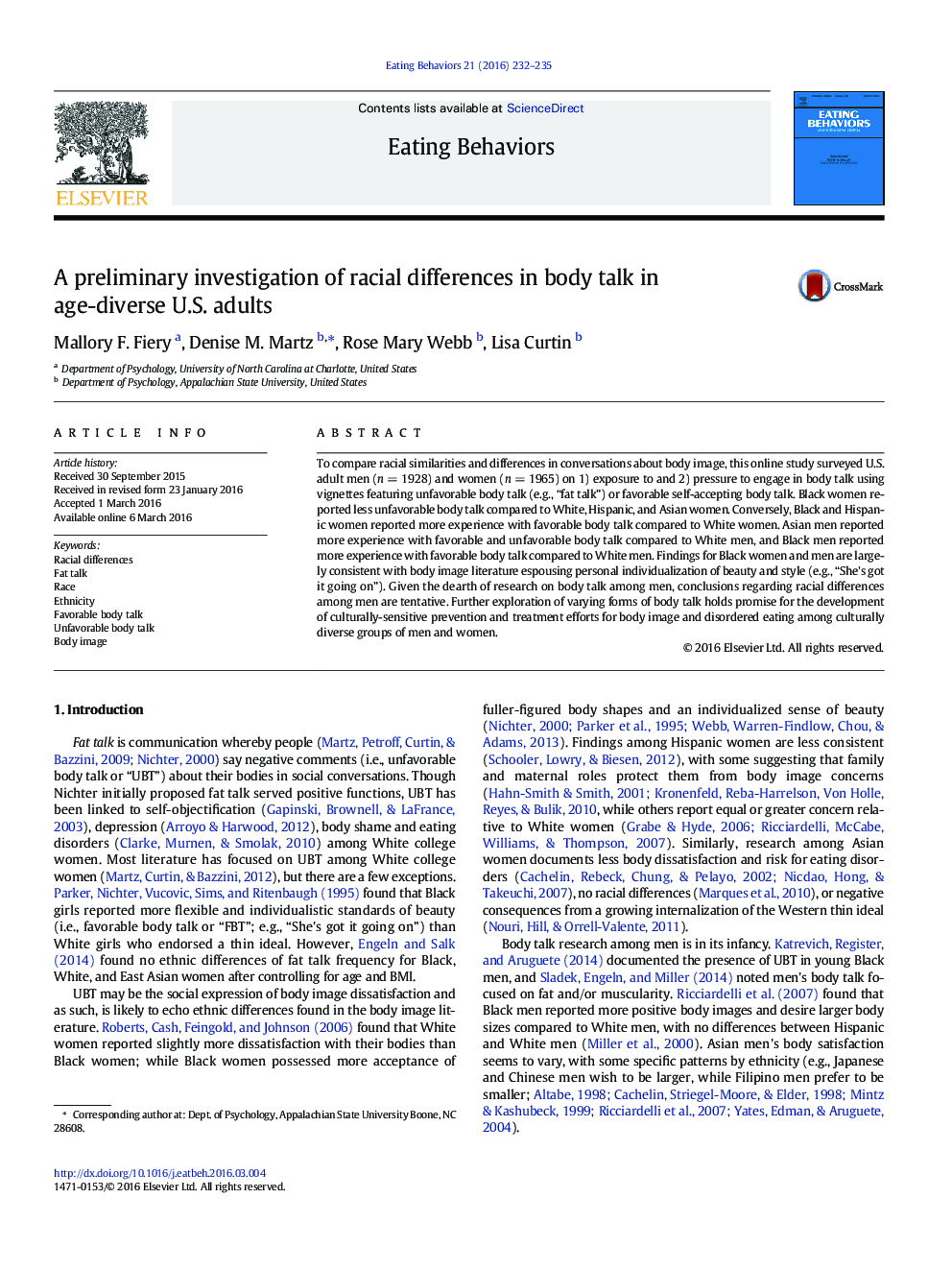| Article ID | Journal | Published Year | Pages | File Type |
|---|---|---|---|---|
| 906260 | Eating Behaviors | 2016 | 4 Pages |
•Black women reported less unfavorable body talk compared to White, Hispanic, and Asian women.•Black and Hispanic women reported more experience with favorable body talk compared to White women.•Asian men reported more experience with all forms of body talk compared to White men.•Black men reported more experience with favorable body talk compared to White men.
To compare racial similarities and differences in conversations about body image, this online study surveyed U.S. adult men (n = 1928) and women (n = 1965) on 1) exposure to and 2) pressure to engage in body talk using vignettes featuring unfavorable body talk (e.g., “fat talk”) or favorable self-accepting body talk. Black women reported less unfavorable body talk compared to White, Hispanic, and Asian women. Conversely, Black and Hispanic women reported more experience with favorable body talk compared to White women. Asian men reported more experience with favorable and unfavorable body talk compared to White men, and Black men reported more experience with favorable body talk compared to White men. Findings for Black women and men are largely consistent with body image literature espousing personal individualization of beauty and style (e.g., “She's got it going on”). Given the dearth of research on body talk among men, conclusions regarding racial differences among men are tentative. Further exploration of varying forms of body talk holds promise for the development of culturally-sensitive prevention and treatment efforts for body image and disordered eating among culturally diverse groups of men and women.
